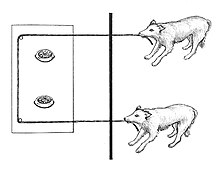
Back Portaal:Biologie Afrikaans بوابة:علم الأحياء Arabic قيسارية:لبيولوجيا ARY Portal:Biologiya Azerbaijani پوْرتال:بیوْلوْژی AZB Партал:Біялогія Byelorussian Портал:Биология Bulgarian প্রবেশদ্বার:জীববিজ্ঞান Bengali/Bangla Portal:Biologija BS Portal:Biologia Catalan
-
Darlingtonia californica — California pitcher plant This patch of Darligtonias is the northernmost natural patch.
-
Harvestman (Opilio canestrinii), male, on a geranium flower. He is cleaning his leg by drawing it through his jaws.
Biology is the scientific study of life. It is a natural science with a broad scope but has several unifying themes that tie it together as a single, coherent field. For instance, all organisms are composed of at least one cell that processes hereditary information encoded in genes, which can be transmitted to future generations. Another major theme is evolution, which explains the unity and diversity of life. Energy processing is also important to life as it allows organisms to move, grow, and reproduce. Finally, all organisms can regulate their own internal environments. (Full article...)
Featured article

The cooperative pulling paradigm is an experimental design in which two or more animals pull rewards toward themselves via an apparatus that they cannot successfully operate alone. Researchers (ethologists, comparative psychologists, and evolutionary psychologists) use cooperative pulling experiments to try to understand how cooperation works and how and when it may have evolved.
The type of apparatus used in cooperative pulling experiments can vary. Researcher Meredith Crawford, who invented the experimental paradigm in 1937, used a mechanism consisting of two ropes attached to a rolling platform that was too heavy to be pulled by a single chimpanzee. The standard apparatus is one in which a single string or rope is threaded through loops on a movable platform. If only one participant pulls the string, it comes loose and the platform can no longer be retrieved. Only by pulling together in coordination can the participants be successful; success by chance is highly unlikely. Some researchers have designed apparatus that involve handles instead of ropes. (Full article...)
Popular pages
Period: 2024-12-01 to 2024-12-31
Total views: 10,900,942
Updated: 04:12, 5 January 2025 (UTC)
Featured pictures
- » subpages: amphibians, arachnids, birds, cnidarians, crustaceans, echinoderms, fish, insects, mammals, molluscs, reptiles, others
- » more ...
Get involved
- For editor resources and to collaborate with other editors on improving Wikipedia's Biology-related articles, see WikiProject Biology.
Categories
- » Categories: Category:Biology, Category:Biology books
Topics
- » Outline of biology, History of biology, Timeline of biology and organic chemistry, Index of biology articles
Vital articles
























